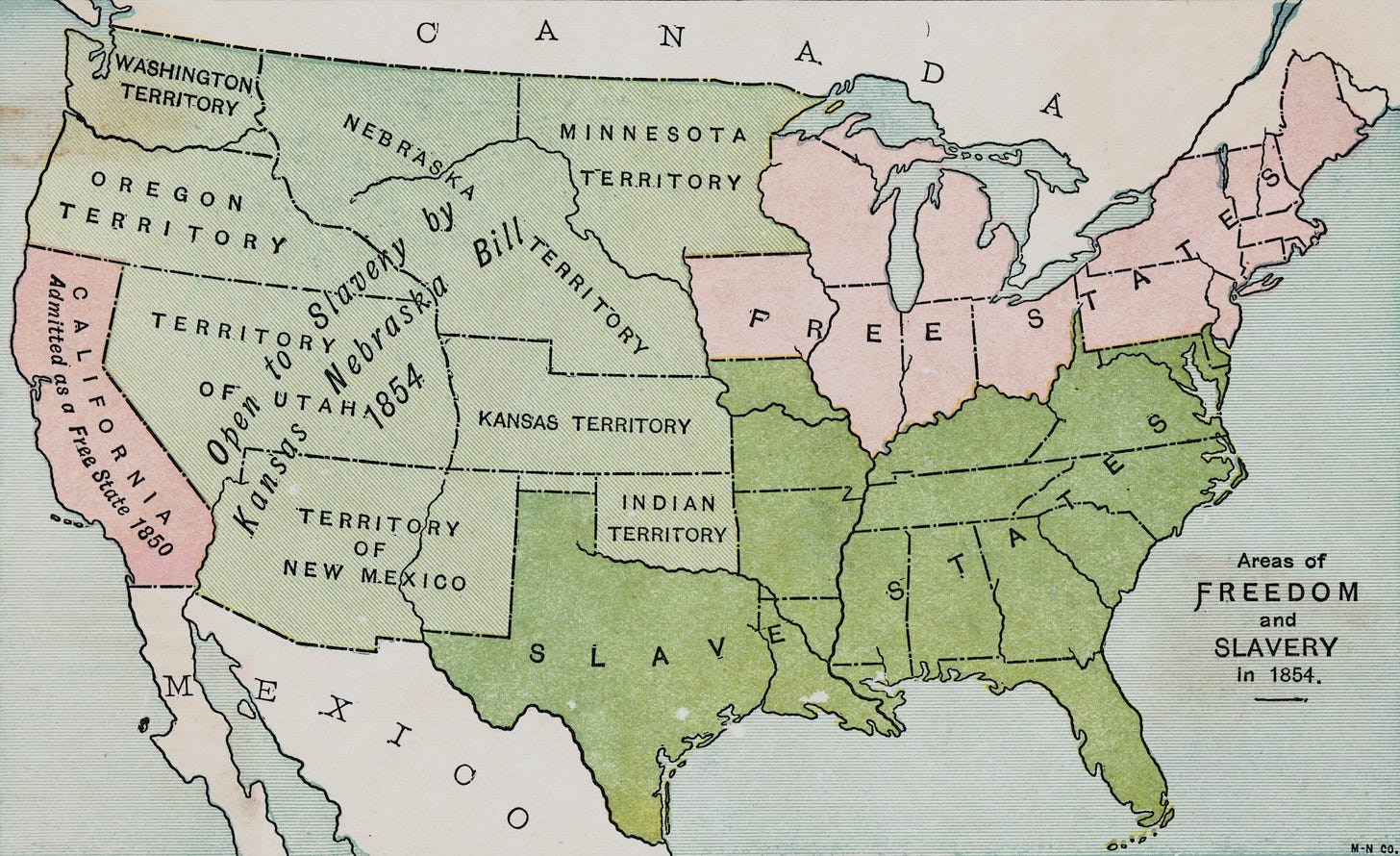Your cause is not the moral equivalent of fighting slavery
Against abolitionist cosplay

Waleed Shahid, one of the smartest people in left politics, wrote a really good post a couple of weeks ago looking at how Radical Republicans dealt with the electoral environment of the 1850s.
There was a lot of talk at that time about how the then-new Republican Party would do well to find a way to ice out abolitionists so the party could credibly commit to the moderate platform of no slavery in the territories. This is not what happened.
In 1860 the G.O.P. did nominate a moderate guy named Abraham Lincoln, and he certainly ran on the moderate platform. But in the safer Yankee heartland seats of the northeast, plenty of Radicals held office. This created some political complications for Lincoln, but the zealotry of the Radicals also helped power Republican campaigns. Most of all, the Radical presence inside the coalition was an important driving force on policy substance. Moderation had its benefits, and the Radicals benefitted from pragmatism and realism about electoral politics. But nobody looks back on 19th century America and says that the extension or non-extension of slavery into the Kansas Territory was the critical issue of the day — the critical issue of the day was the fundamental legitimacy of the slave system. The Radicals were fundamentally correct on the issue. And the moderates were fundamentally correct about the electoral politics of 1860.
Shahid’s piece is great historical writing and, zooming out to 50,000 feet, I think it aligns with a lot of Shahid’s early work with the Justice Democrats.
The premise of A.O.C.’s primary campaign against Rep. Joe Crowley wasn’t that left-wing politics was poised to take Iowa by storm. It wasn’t denialism about the electoral benefits of moderation. It rested instead on the notion that left politics was correct on the merits and that there were a lot of seats like Crowley’s where the political geography would easily support a more left-wing candidate than the incumbent. Crowley, like a lot of members in safe seats, was not progressive-maxing, even though he could have gotten away with it. The idea was to find seats like that and elect smart savvy left-wingers to them in hopes of altering the trajectory of policymaking.
This all, I think, makes sense. Except it also raises what I think is the deeper problem of contemporary progressive politics: In this analogy, what is slavery?
Today’s left lacks a singular focus
Keep reading with a 7-day free trial
Subscribe to Slow Boring to keep reading this post and get 7 days of free access to the full post archives.

